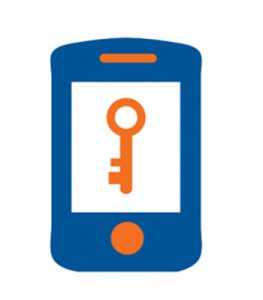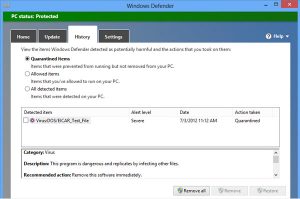CLAS IT Connections
Article Category: <span>Security</span>
Phish Food in 2023!

Recognizing and Protecting Yourself from Phishing Attacks In today’s digital age, staying vigilant against cyber threats is crucial. One such threat that continues to target unsuspecting individuals is phishing. Phishing attacks involve the deceptive use of emails, messages, or websites to steal sensitive information, such as passwords, credit card numbers, and personal details. Understanding how
“Virus Alert” notifications!

Web Push Notifications “Wait, I don’t use McAfee…” If you use a browser to search the web, you’ve probably received a pop-up requesting access to send push notifications. For example, Facebook will ask to send desktop notifications so you can see new activity, even if the browser is closed. For a legitimate website, this poses
MFA Bombing Attacks

Recently, the University of Florida has seen a number of account compromises even though they all had Two-Factor Authentication with DUO. These accounts were compromised because the account owners fell for a special type of attack against their account called MFA bombing. MFA Bombing, otherwise known as “MFA Spamming” or “MFA Fatigue Attack” is a
Securing your email from prying eyes

Standard email, like standard mail, is insecure. It is technically possible to intercept email messages at various points in the path between the sender and the recipient. Because of this, UF GatorMail now has an option to easily encrypt messages so that even if they’re intercepted, no one other than the intended recipient will be
Risk Assessment Update – Fall 2022

The university has a policy that requires any piece of software or hardware be evaluated for risks to the institution. It is the responsibility of every employee at the university to follow the policy, the full policy can be found online at https://it.ufl.edu/it-policies/information-security/risk-management-policy/ Some of the reasons this policy is in place include: Protecting UF
MFA – Multi-Factor Authentication

Recently, the University of Florida has begun to mandate enrollment in multi-factor authentication, in an effort to combat the ever-increasing number of attempts to compromise user accounts and systems that provide campus services. You might have heard of “two-factor authentication” but the term multi-factor authentication (MFA) has gained favor to allow for additional methods of
Adobe Flash Player End of Life

Three years after their announcement in July 2017, Adobe Flash Player is finally coming to an end on December 31, 2020. Now you may be wondering, “What is Flash and how is this going to affect me?” Adobe Flash is a free software that was extremely common a few years back. Flash allowed users to
Zoom Tips and Tricks

Keeping Zoom up to Date Zoom updates their software frequently to address security flaws, bugs, and to provide feature updates. Often, Zoom will let you know an update is available when you leave a meeting, but some minor fixes or feature updates won’t prompt you to update so it’s a good idea to check for
Defender yes, Trend no

CLAS-IT is Removing Trend anti-Virus and enabling Windows Defender. Since we have really good tools for monitoring Malware activity using our desktop support tool, SCCM, we are moving forward with using the built in Microsoft program Windows Defender to keep CLAS Windows Systems safe from Malware. This change is being rolled out automatically and the
I was Pwn3d!

I have a confession to make. I was recently blackmailed by a “sextortion” email and it surprised me in many ways. The email promised to share compromising videos, supposedly captured from the web-camera on my laptop, with family and friends unless I made an untraceable payment through Bitcoin. To add credibility to the threat, the